Astronomy
-
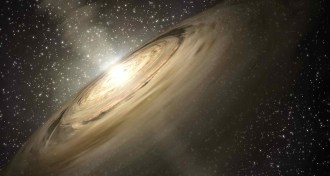 Astronomy
AstronomyCyanides around young star signal complex organic chemistry
Abundances of cyanide compounds around a young star match those found in comets in our solar system.
-
 Science & Society
Science & SocietyOne anniversary to celebrate, one to contemplate
In this issue, both feature articles focus on anniversaries, though of two very different kinds.
By Eva Emerson -
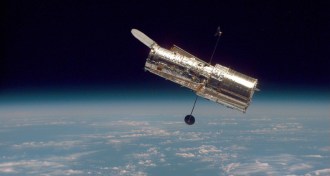 Astronomy
AstronomyCelebrating 25 years of the Hubble Space Telescope
The Hubble Space Telescope has served for more than two decades as the sharpest eyes ever to peer into the universe.
-
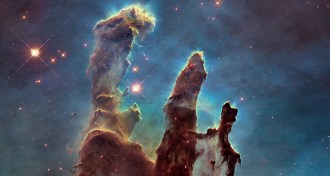 Astronomy
AstronomyThe art of astronomy
Astronomer Zoltan Levay uses the Hubble Space Telescope to create stunning images of cosmic landscapes.
-
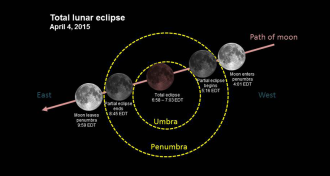 Astronomy
AstronomySaturday’s lunar eclipse will be total, but brief
A brief total lunar eclipse on April 4 favors observers from western North America to Australia.
-
 Planetary Science
Planetary ScienceMinisatellites could detect dangerous asteroids, researchers propose
Five tiny telescopes orbiting the sun could provide early warning for an Earth-bound asteroid, though other researchers disagree.
-
 Astronomy
AstronomyPrimordial stars left their imprint on dwarf galaxy
A smattering of stars in a dwarf galaxy outside the Milky Way witnessed explosions from the first generation of stars.
-
 Earth
EarthSpot the northern lights with Aurorasaurus
Crowdsourced Aurorasaurus project uses Twitter to track the northern lights.
-
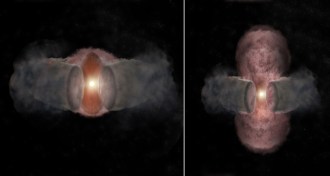 Astronomy
AstronomyFountains of spewing gas provide look at megastar formation
Fountains of gas erupt from a young massive star, giving astronomers a play-by-play on how stellar heavyweights form.
-
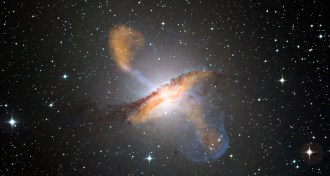 Astronomy
Astronomy‘Supernova sweeping’ cleans up a galaxy’s gas
Supernovas might sweep the remaining gas out of a galaxy after a supermassive black hole triggers the end of star formation.
-
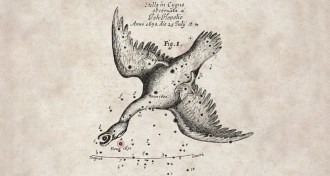 Astronomy
AstronomyEnigmatic 17th century nova wasn’t a nova at all
A nova observed in 1670 was actually two stars colliding, new evidence suggests.
-
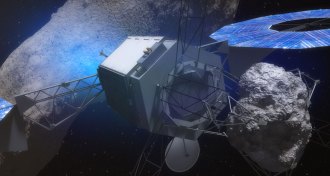 Planetary Science
Planetary ScienceNASA has a plan for putting rock from asteroid in moon’s orbit
NASA selects concept for its Asteroid Redirect Mission, which will let astronauts train for future missions to Mars.